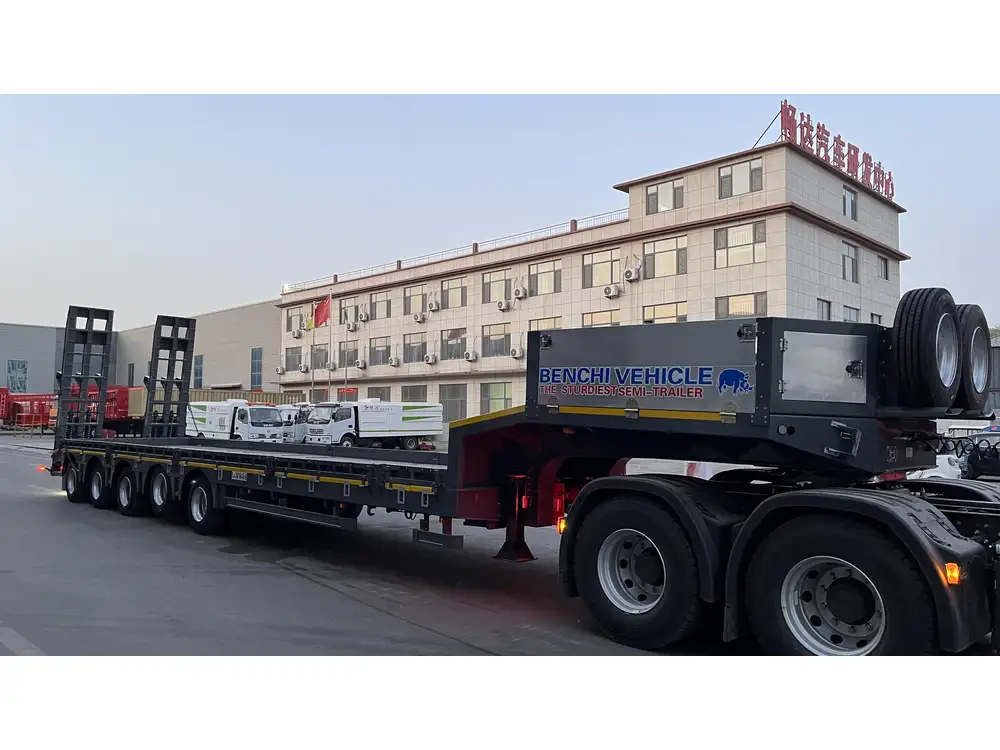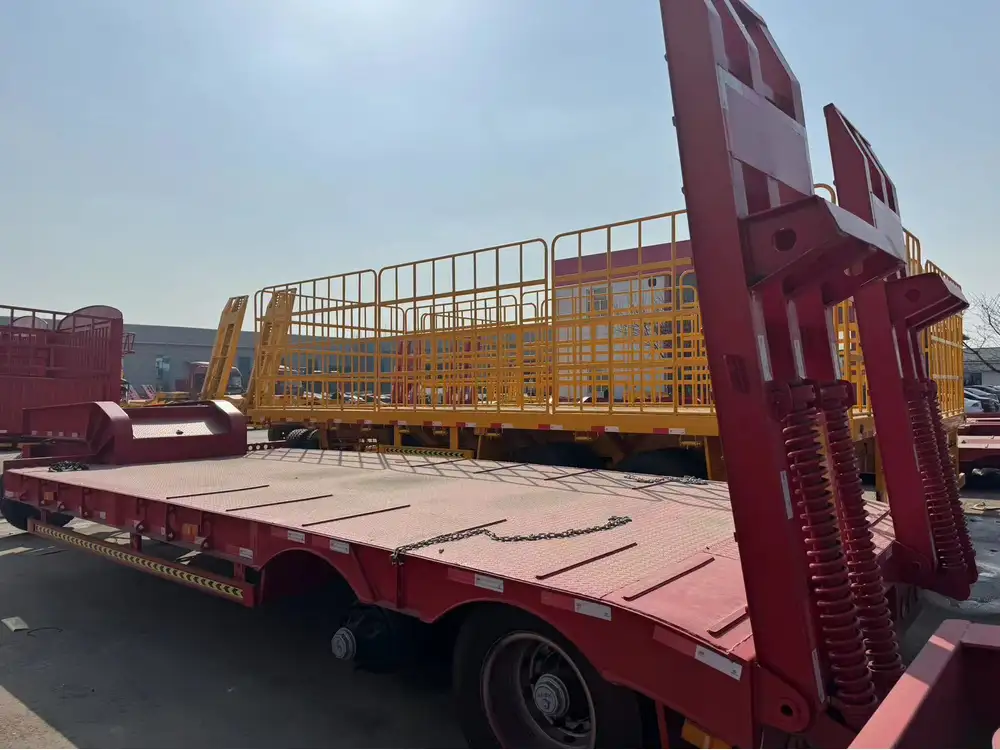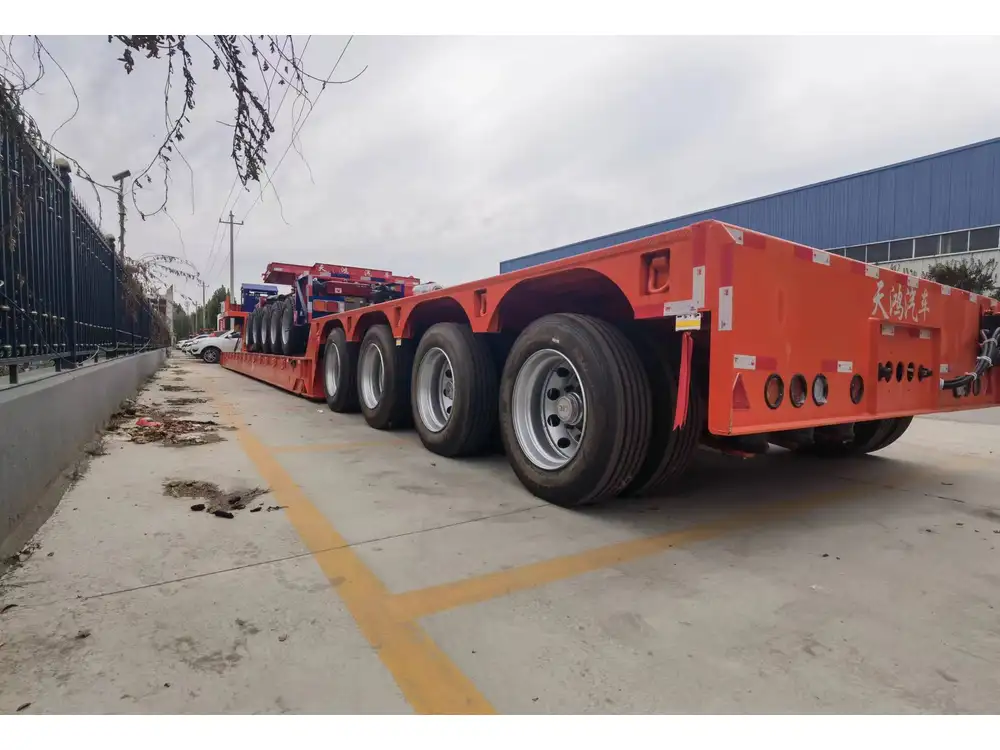When it comes to transporting chicken litter, determining the appropriate size of your dump trailer is crucial for operational efficiency. The capacity of your trailer will directly affect how much material you can move in a single trip, which in turn influences your overall productivity and profitability. In this article, we will analyze several key components that play a pivotal role in deciding the ideal dump trailer size for hauling chicken litter effectively.
Understanding Chicken Litter
What is Chicken Litter?
Chicken litter is a mixture of chicken manure, bedding material (like wood shavings or straw), and feed remnants. Due to its high nutrient content—particularly nitrogen, phosphorus, and potassium—chicken litter is often utilized as a fertilizer in agricultural fields, enhancing soil quality and crop yields.

Benefits of Using Chicken Litter
- Nutrient-Rich: Offers a balanced source of nutrients essential for plant growth.
- Cost-Effective: Provides an economical alternative to synthetic fertilizers.
- Soil Structure Improvement: Enhances soil aeration and water retention.
Factors Influencing Dump Trailer Size
1. Volume of Chicken Litter to be Hauled
The first step is to evaluate the amount of chicken litter you expect to transport. You’ll need to consider both the weight and volume since dump trailers are typically rated by cubic yards and gross vehicle weight rating (GVWR).

Weight Considerations
- Density of Chicken Litter: The density of chicken litter varies based on moisture content. Usually, it weighs between 800 to 1,200 pounds per cubic yard when mixed with bedding material.
Volume Calculation
To determine the volume needed, consider how much chicken litter you need to transport at once. For instance, if you plan to haul 10 tons of chicken litter with an average density of 1,000 pounds per cubic yard:
- Total Weight: 10 tons = 20,000 pounds
- Cubic Yards Needed: 20,000 pounds ÷ 1,000 pounds/cubic yard = 20 cubic yards
2. Trailer Capacity
Dump trailers come in various capacities, typically ranging from 5 to 20 cubic yards or more. Choosing the right capacity depends not only on your hauling needs but also on the maximum weight your vehicle can safely tow.
| Trailer Size (Cubic Yards) | Weight Capacity (Pounds) | Ideal for |
|---|---|---|
| 5 | 7,500 | Small farms, limited litter |
| 10 | 15,000 | Average-sized operations |
| 15 | 20,000 | Larger farms with high volumes |
| 20+ | 25,000+ | Commercial operations |

3. Haul Distance
The distance to transport chicken litter also impacts your trailer choice. Longer distances may necessitate additional capacity to ensure you can minimize trips while meeting weight distributions.
4. Dump Trailer Specifications
- Construction Material: Look for trailers constructed with durable materials, like high-strength steel or aluminum, which can withstand the corrosive nature of chicken litter.
- Hydraulic Functionality: Ensure that hydraulic systems can manage the scale of your load effectively.
- Height of Sidewalls: Higher walls allow for increased volume but may reduce stability if overloaded.
Dump Trailer Size Recommendations

Small-Scale Operations: Up to 7,500 lbs
If you’re running a small poultry farm or engaged in localized transport:
- Recommendation: A 5-cubic yard dump trailer.
- Why?: This size allows for manageable loads and is easy to maneuver, especially in tight farm settings.
Medium-Scale Operations: 7,500 to 15,000 lbs
For medium-sized operations, where litter transportation needs increase:
- Recommendation: A 10-cubic yard dump trailer.
- Why?: This capacity provides a balance between volume and weight, ensuring efficiency while minimizing trips and fuel costs.
Large-Scale Operations: Over 15,000 lbs
If you are part of a commercial operation:
- Recommendation: Consider a 15 to a 20-cubic yard dump trailer.
- Why?: These trailers facilitate significant transport capabilities, allowing you to manage higher output levels effectively.

Calculating the Cost of Hauling
1. Operational Costs
Understanding the costs involved in operating your dump trailer is essential for informed decision-making.
Fuel Costs
To determine fuel costs:
- Distance of Haul: Average mileage per trip.
- Fuel Efficiency: MPG rating of the towing vehicle.
- Fuel Price: Local fuel prices.

2. Maintenance Costs
Regular maintenance is crucial for longevity:
| Maintenance Task | Average Cost | Frequency |
|---|---|---|
| Tire Replacement | $1,000 – $1,500 | Every 3-5 years |
| Hydraulic System Check | $200 – $500 | Annually |
| Brake System Inspection | $150 – $300 | Annually |
3. Depreciation
Understanding the value depreciation of your equipment can help in future budget planning as well.
Safety Considerations
When hauling chicken litter with a dump trailer, safety should always be paramount.

1. Weight Distribution
Improper weight distribution can increase the risk of accidents. Always ensure the load is evenly distributed across the trailer.
2. Visibility
Ensure that trailers have adequate lighting and reflectors to improve visibility, especially during night-time operations.
3. Secure Loading
Chicken litter can shift during transport; securing the load with tarps or nets can help prevent spillage and maintain safety on the road.

Making the Right Choice
Summary of Considerations
- Evaluate the amount of chicken litter you need to haul.
- Choose a trailer that matches your operation size.
- Consider costs of operations, maintenance, and potential revenue from efficient hauling.
Final Recommendations
- Prioritize Quality: Investing in a quality dump trailer built for your specific needs pays dividends in durability and reliability.
- Seek Expert Advice: Collaborate with fellow farmers or trailer experts to share wisdom about the best choices for hauling chicken litter.

Future Topics to Explore
- Maintenance Tips for Dump Trailers: Ensuring longevity and efficiency.
- Innovative Technologies in Dump Trailers: Smart systems for tracking loads and routes.
- Economic Benefits of Organic Fertilizers: Analyzing costs vs. benefits.
Choosing the right dump trailer for hauling chicken litter is a multifaceted decision with implications on productivity and cost-efficiency. By weighing the factors discussed above and selecting a trailer that aligns with your operational needs, you can support not just your immediate agricultural goals but also long-term sustainability in your farming practices.



